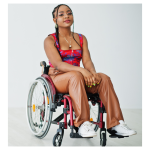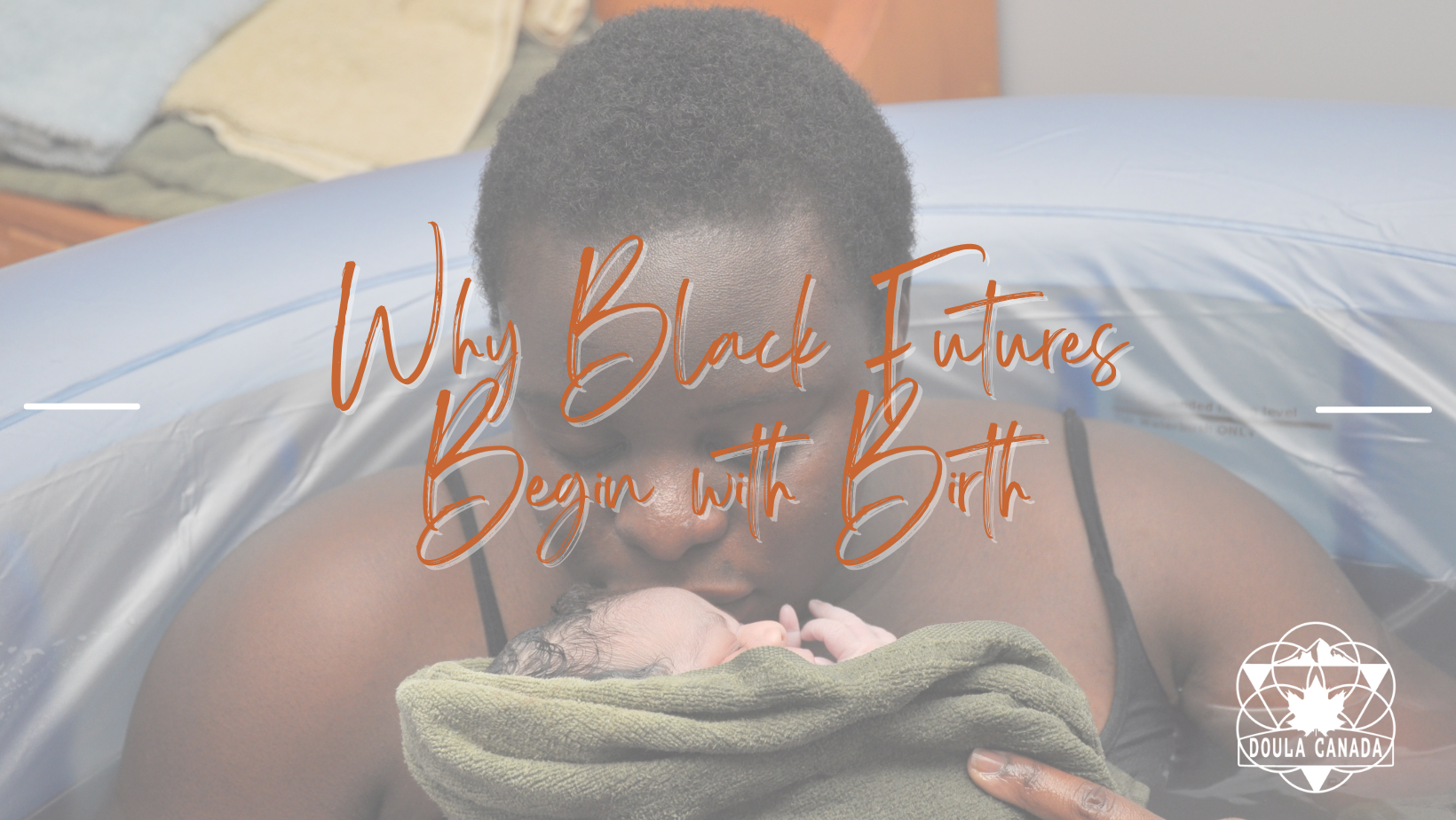[vc_row][vc_column][vc_column_text css=”.vc_custom_1709738042033{margin-bottom: 0px !important;}”]A river may be so still that you can see your reflection, but its current is always in motion. This year has been a time of great change for Doula Canada as we have welcomed renewal in the form of new leadership. We have taken advantage of this transition to reflect on revitalizing our commitment to equity, diversity, and inclusion at DC and in the birth sphere. Our goal is to ensure that Doula Canada alumni have the necessary tools and frameworks to meet the diverse spectrum of birthing people, families, and communities with compassion, affirmation, and allyship. In the coming year, we will continue to apply the lessons learned from all of your insights to realize policy, curricula, and continuing education that sets doulas, reproductive health educators, and birthworkers up for long-term success in an ever-changing world.
Here are some of the highlights of our actions in 2023 and our plans to advance our journey towards achieving social justice in our learning community and perinatal social systems in 2024.
Content & Communications
One of our goals is to ensure that DC alumni have access to a wealth of information that offers insight into the experiences of equity-seeking birthers and families, and tools to empower effective support. This year, we accomplished this by creating and publishing original articles, position statements, downloadable resources, and live-streamed discussions.
Articles and Position Statements
Our blog provides ongoing equity, diversity, and inclusion content that situates reproductive justice in the context of social issues, and that supports our learners to cultivate a deeper understanding of the social determinants of reproductive health. In 2023, our blog offered articles on trans inclusion, domestic and gender-based violence, truth and reconciliation, poverty, black maternal health, and many other essential perinatal health equity topics.
We also endeavoured to be responsive to the impact of current events on community well-being by providing a statement on the Israel-Hamas conflict that offered comfort to our members and practical strategies for preserving emotional stability and community connectedness.
Downloadable Resources
In 2023, we created three downloadable resources to provide practical guidance for birth workers. The first was our Advocacy Toolkit. The toolkit continues the work done in 2022 to develop an advocacy framework for Doula Canada. The Toolkit works through examples of the ingenious strategies that birthworkers use to promote client self-advocacy and advocate on behalf of clients in a manner that affirms their autonomy and right to informed consent.
Additionally, we created two resources to support human milk feeding. One is an infographic on human milk sharing that provides information on the risks and benefits of milk sharing, as well as safety guidelines that support families to make informed choices about their feeding options. The second is a curated Lactation Recipe Box with meal and snack ideas that are packed with ingredients that gently encourage milk production.
Live Streams
We continued our tradition of hosting great conversations with experts and thought leaders from within Doula Canada and the broader birth world. Our guests offer insight into how they’ve applied their training and lived experience to facilitate clients’ access to equitable care. In 2023, topics included empowering teen birthers, debunking fatphobic reproductive health myths, barriers to fertility care, what we need to know about birthers who use testosterone, and the experiences of black families with more than “2.5 kids”. Content ideas were generated from discussions with our members at live events and online and from suggestions made using our anonymous feedback form. Our audience can access this content at any time from our Facebook page or our YouTube Channel.
In 2024, live streaming content will shift to a virtual, guest speaker Q&A series, opening with Support Men’s Lactation Like a Boss on February 29.
Programming
Doulas for Reconcili-ACTION
Committing to our Truth and Reconciliation Action Plan, we launched the Doulas for Reconcili-ACTION program. The Doulas for Reconcili-ACTION program aims to include non-Indigenous doulas in important conversations about the impacts of settler-colonialism, and build cultural humility skills in an applied workshop format. Our first workshop was held for National Day for Truth and Reconciliation, and focused on the historical traumas imposed on Indigenous communities, and the role of doulas in mitigating risk factors for Indigenous families.
In 2024, the Doulas for Reconcili-ACTION program will be running on a monthly basis.
Webinars
Recognizing a need for community healing and dialogues in the aftermath of the disturbing events culminating in the arrest of Kaitlyn Braun in March of 2023, we hosted a session aimed at providing a safe container for community members to unpack the feelings arising from this distressing incident. The session was facilitated by Elizabeth Evans, RSW, and Psychotherapist and generated a presentation for community members on collective healing after traumatic events.
In order to provide practical support to our members regarding the implementation of ethical practice as defined by the law, we also hosted a webinar on understanding the legalities of your doula biz facilitated by Ane Posno, LLB, an expert in health and contract law at Lenczner Slaght. The first webinar of its kind at DTC, the live session provided vital information on documentation, confidentiality, and reporting obligations for doulas.
Organizational Development
Census
For the first time in its over 20-year history, DTC undertook a demographic census of its student and alumni population to learn more about how we can ensure that our content is responsive to our existing population and target our recruitment efforts to attract equity-seeking communities that may be underrepresented at DTC or in the birth work field.
154 members completed the survey and the findings were illuminating. DTC’s population is highly diverse, with DTC members being more likely to be equity-seeking than the general population across several categories including Queer people, and some racial groups (e.g. Black, Indigenous). Other equity-seeking populations, such as disabled people have representation that is similar to the Canadian population.
One challenge with analyzing this data is that 6.5% of our sample are international but Canadian data has been used for comparison. Other limitations of this data set include categories not always being exactly aligned with the categories used by Statistics Canada, and questions that should be further segmented to create clarity, most notably education.
On the whole, it appears that organizational efforts to ensure that equity-seeking members feel included and represented have been effective at attracting diverse students to our programs. In 2024 we should conduct an evaluation of the EDI climate to learn more about the quality of the learning experience for equity-seeking students, focusing on learning more about the experiences of underrepresented groups. In the case of underrepresented groups, DTC could also consider key informant interviews with individuals external to DTC to learn more about their needs in a birth worker training program and successful recruitment and retention strategies for their community.
Roll out of advocacy framework
In addition to sharing the toolkit mentioned above, we are in the process of ensuring that the lessons learned from the advocacy initiative are incorporated into the anti-oppression module in our courses. The revised curriculum was piloted during the live session on anti-oppression for the fall 2023 cohort of the holistic doula program. The new content includes introducing learners to the 3 soft-advocacy techniques used by doulas as codified by S.S. Yam, namely 1) creating deliberative space, 2) culture and knowledge brokering, and 3) Spatial maneuvering. Live session attendees have the opportunity to discuss examples of how doulas use these advocacy techniques to benefit clients.
TRAP module
In 2023 we launched our truth and reconciliation module, which focuses on educating students about colonial violence toward Indigenous communities. This module was inspired by various universities that have mandated Indigenous Credit Requirements (ICR) to show respect to Indigenous communities, and foster reconciliation between settler and Indigenous groups. In 2024, applications will be open to students and alumni wanting to participate in a review of the Truth and Reconciliation Action Plan, including the module. This committee will also focus on creating a template for a wider five year TRAP outline.
What’s Next
In 2024, we will continue to grow equity, diversity, and inclusion within DTC by undertaking a review of our policies and curricula, developing original video content and offering a mix of new and remounted webinars that build reproductive justice facilitation capacity within our birth work community.
We’re grateful to our alumni community for always inspiring us to continue this important work. [/vc_column_text][/vc_column][/vc_row][vc_row][vc_column][vc_single_image image=”534490″][/vc_column][/vc_row][vc_row][vc_column][vc_column_text css=”.vc_custom_1709738266702{margin-bottom: 0px !important;}”]Keira Grant (she/her) Inclusion and Engagement Lead – Racialized Communities
Keira brings a wealth of experience to the Online Community Moderator role. She is a Queer, Black woman with a twenty-year track record in Equity, Diversity, and Inclusion (EDI) education, projects, and community building initiatives.[/vc_column_text][/vc_column][/vc_row]
 Americans with Disabilities Act was passed in 1990. It is now observed around the world, including in Canada. It creates an opportunity to highlight the strengths and contributions of disabled people and dismantle limiting beliefs about the nature of disability.
Americans with Disabilities Act was passed in 1990. It is now observed around the world, including in Canada. It creates an opportunity to highlight the strengths and contributions of disabled people and dismantle limiting beliefs about the nature of disability. Encouraging people to take pride in their bodies and their ability to birth their babies is at the heart of our calling as doulas. Disabled people have so many reasons to feel proud of what their bodies have achieved. We can remind our clients that they have already come up with countless life hacks to get things done. These are all skills that they can transfer to the new situation of childbirth and infant care. We can let them know that we know that they’re a lot stronger than most people think they are. And where they are not strong, that’s okay, we’ve got their back if help is needed and wanted. We can be that person they remember as someone who didn’t make assumptions about what they could do, but asked questions instead.
Encouraging people to take pride in their bodies and their ability to birth their babies is at the heart of our calling as doulas. Disabled people have so many reasons to feel proud of what their bodies have achieved. We can remind our clients that they have already come up with countless life hacks to get things done. These are all skills that they can transfer to the new situation of childbirth and infant care. We can let them know that we know that they’re a lot stronger than most people think they are. And where they are not strong, that’s okay, we’ve got their back if help is needed and wanted. We can be that person they remember as someone who didn’t make assumptions about what they could do, but asked questions instead.



